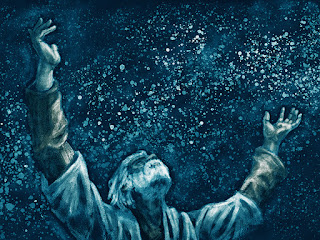God Is In Control

“Are there not twelve hours in the day?” John 11:9 When Jesus suggested going back to Judea, the disciples were terrified. The Jews had tried to stone Him there only recently, and now He was talking about a return visit. In answer to the disciple’s apprehension, Jesus said, “Are there not twelve hours in the day?” At first glance, the question seems to be completely disconnected from the conversation. But what the Savior was saying was this – the working day is made up of twelve hours. When a person is yielded to God, every day has its appointed program. Nothing can thwart the accomplishing of that program. So even if Jesus went back to Jerusalem, and even if the Jews tried to kill Him again, they could not succeed. His work was not finished. His hour had not yet come. For every child of God, it is true that he is “immortal till his work is done.” This should impart great peace and poise to our lives. If we are living in the will of God, an...




